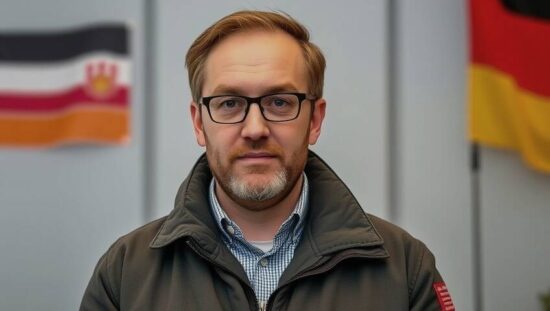German disaster researcher Martin Voss believes a fundamental re-evaluation of Germany’s civil defense is necessary in the face of hybrid threats, including those from Russia.
“Our civil defense is no longer up to date” said the expert from the Free University of Berlin to the Rheinische Post (Monday edition). “We basically brought down the civil defense from the Cold War era to zero, dismantled reserve forces, abolished aid hospitals, and demilitarized shelters” Voss explained. This had good reasons at the time.
“But until today, we have not fundamentally re-established the civil defense. Today, we are exposed to new threats, such as Russia’s hybrid warfare, but also many other actors” Voss said.
What’s needed most is a new social understanding of civil defense. “Without this fundamental understanding, it makes little sense to talk about individual measures like shelter rooms. Shelter rooms are a link that only comes much later in the chain. It’s not just about preparing for conventional or nuclear warfare, but to consider the entire spectrum of warfare in 2024” Voss said.
He also advocated for more transparent information for the public. “For better preparation of the population, an offensive information campaign would be sensible. The public is quite capable of handling many information with much better results than is generally assumed” Voss said.
In a democracy, transparency and a good access to information are essential. “If the broad public is denied this access, it’s the ground for mistrust, which manipulators of all kinds can exploit. Of course, security aspects must be considered, but the principle should be: as much transparency as possible, as little secrecy as necessary” Voss said.
The President of the Federal Agency for Civic Protection and Disaster Relief (BBK), Ralph Tiesler, also believes that further efforts in civil defense are necessary, despite an increased awareness of crisis preparedness. “Civil defense and civilian defense are, alongside military defense, a necessary pillar of overall defense” Tiesler said to the Rheinische Post.
“The question of how well we are prepared is to be answered by how well we can cope with crises and disruptions of our daily life” the BBK President said. This concerns all social areas, from state organizations to businesses and the population itself.
“The awareness of crisis preparedness has grown significantly in recent years, and many have already taken precautions and defined processes that can be applied in an emergency, from extreme weather events to sabotage acts to a crisis or defense situation” Tiesler said, while also calling for further efforts: “We must, however, intensify our efforts in the coming years.





